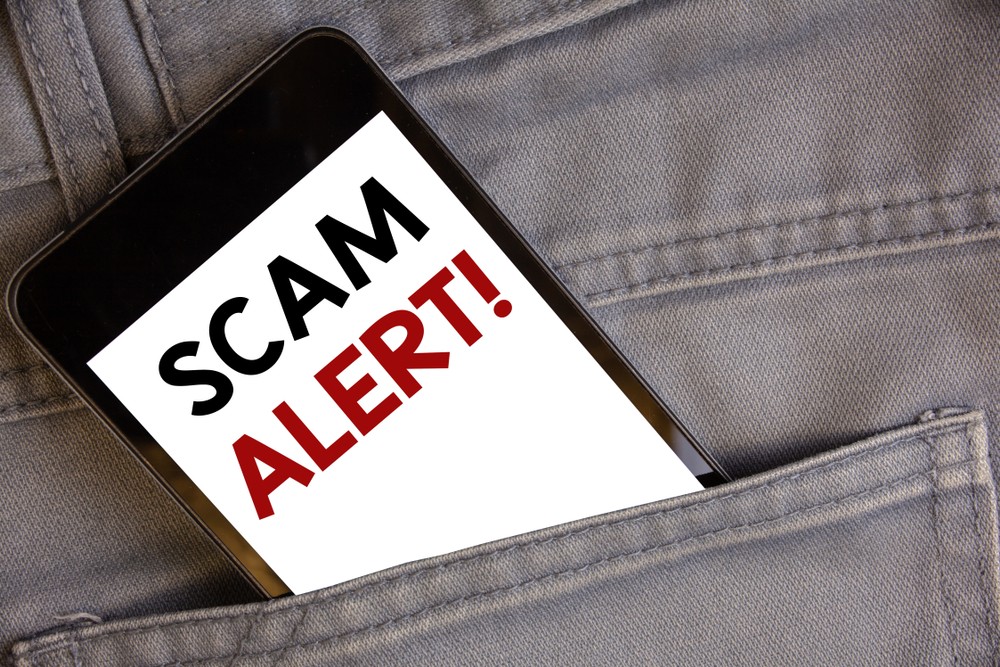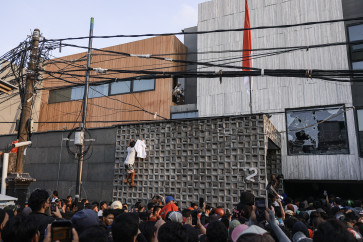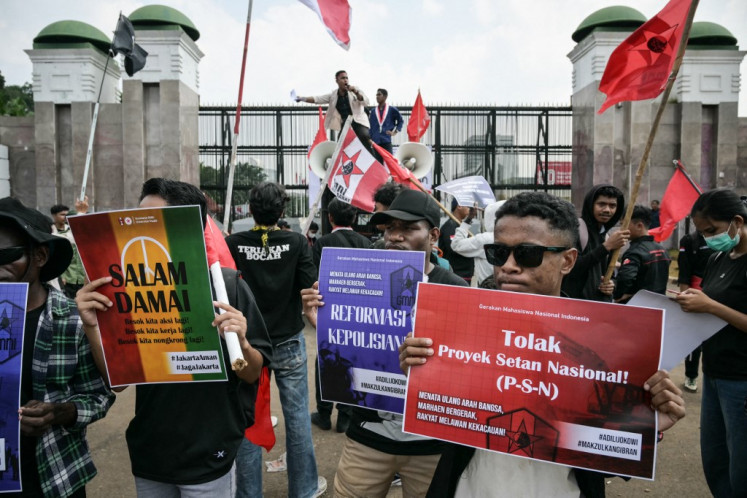Popular Reads
Top Results
Can't find what you're looking for?
View all search resultsPopular Reads
Top Results
Can't find what you're looking for?
View all search resultsSpam calls, texts frustrate Indonesian consumers
RI ranks sixth globally for phone users aff ected by scams.
Change text size
Gift Premium Articles
to Anyone
Many Indonesians feel pestered by spam calls and text messages, some of which are designed to ensnare them in crafty scams.
Private-sector employee Vita recalled a call she received last year from an unknown person claiming to be a representative of her data provider, Telkomsel. The person asked her to exchange her reward points, but Vita knew better.
“When I asked them to send me the details via email or app, they were flustered. They said they could only send me a link through SMS,” the 26-years-old said on Wednesday.
Vita received the link, but did not do anything further. She said she had learned her lesson from a similar scheme back in 2020, when a scammer had almost got hold of her personal data.
“Back then, I followed their instructions, because I was not paying attention. I think this is also their trick, because they called during business hours when I was busy,” she recalled. “I contacted Telkomsel, and they were cooperative, but these spam calls keep happening.”
The government has made it mandatory to register a phone number with a user’s identity card (NIK) and family card (KK) numbers in 2017. However, Vita opined that that policy did little to curb spam.
Read also: Exposed by the past: Indonesia’s phone number recycling may result in data leaks
“I am hopeless. I don’t know why the government is negligent about protecting consumers. Telecommunication companies are only able to receive reports and try to block numbers; they are also overwhelmed,” she said.
Meanwhile, Jakarta-based employee Billy Widjaya said he received an average of three to four spam messages a month, ranging from offerings of loans and fake claims of prizes won to supposed witchcraft services.
“The text messages bother me because of the frequency,” he said on Friday. “I only look at the message preview and I do not open it, because I am afraid it contains malware.”
Billy said he wished telecommunication companies could automatically block messages of this type, because it was troublesome for consumers to report every spam message.
In the Global Spam Report 2021 published by Swedish smartphone app Truecaller, Indonesia ranked sixth among the countries where consumers were most affected by spam calls. While that is a slight improvement from the third place in 2019, it is little consolation to annoyed users.
Read also: Indonesia named third-most spammed country in the world
The study found that, on average, a person in Indonesia received 14 spam calls per month, an improvement from 18.3 in 2020. The latest trend is more alarming, however, as the total number of spam calls more than doubled from 12.6 million in January to 25.8 million in October.
The report added that scammers in Indonesia had “an unusually scientific and precise way” of setting sights on their targets, often digging out the complete background and financial history of their target along the way.
“This is a bigger issue in Indonesia, because very few people recognize scams, with just 1 percent of all marked numbers [recognized], while the menace continues to grow,” the report states.
Truecaller chief commercial officer Kari Krishnamurthy said consumers could do several things to protect themselves, such as safeguarding personal information like bank account details and passwords and deleting suspicious text messages to avoid spyware and fraud.
He added that telecommunications companies could collaborate with caller and spam identification service providers to tackle the issues at hand.
“Imagine if this could be upscaled along with big telecom players. Together, we can stop this menace of spam and scams and ensure greater safety in the space of communication,” he told The Jakarta Post.
Telecommunications providers in Indonesia have set up their own spam reporting portals through their call centers, social media and SMS services.
XL Axiata corporate communications group head Tri “Ayu” Wahyuningsih Harlianti said her company had set up a mechanism to automatically block numbers blasting out a high number of messages in a short time.
She said XL had received around 8,700 reports regarding spam calls and text messages last year.
“However, the trend is decreasing, as there are many education programs to increase consumers’ [safety] awareness,” she added.
Meanwhile, Telkomsel external corporate communications general manager Aldin Hasyim said telecom firms were also cooperating with the police to block scammers’ phone numbers.










